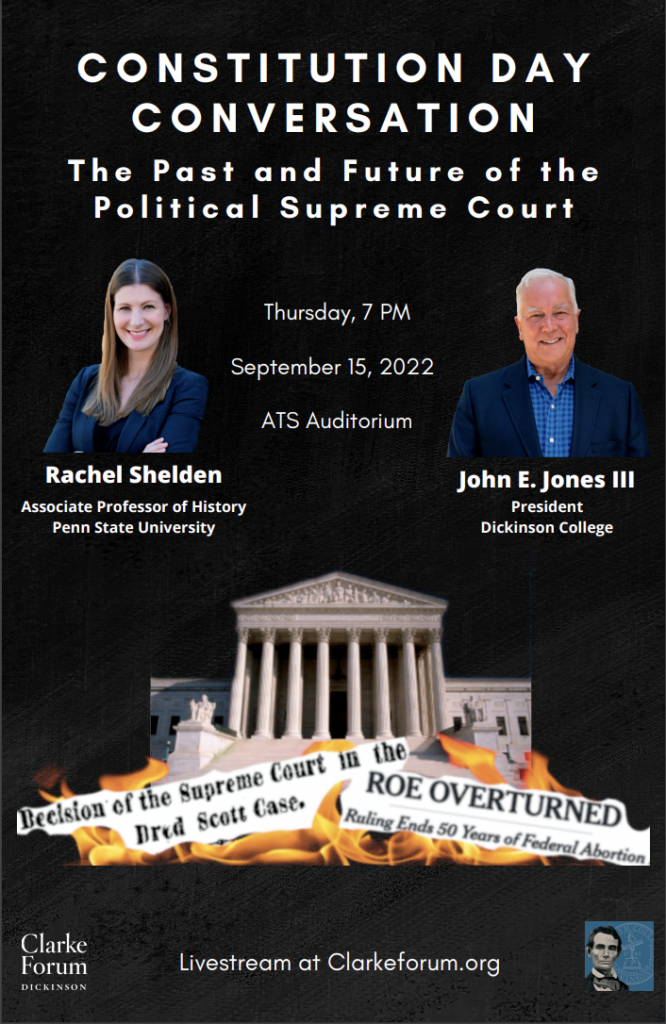Case Study: Taking the Trade
- 1742 in Pomfret, Connecticut
- Amasa Sessions (age 27) impregnates Sarah Grosvenor (age 19)
- “Doctor” John Hallowell gives Sarah “trade” and attempts surgical abortion
- Sarah miscarries and dies in September 1742
- Sarah’s older sister Zerviah reveals the story in 1745
- Hallowell convicted in 1747 but escapes to Rhode Island
- Sessions and Grosvenor families continue to remain intermingled
- Amasa Sessions serves in French & Indian War and dies as an old, respected figure in town
In “Taking the Trade,” Cornelia Hughes Dayton narrates a chilling tale of two young eighteenth-century Puritans and their Connecticut families as they plunge deeper and deeper into a moral catastrophe. The story challenges almost all of the assumptions students have about Puritan culture, but Dayton deftly uses the case involving Pomfret residents Sarah Grosvenor and Amasa Sessions to illustrate a culture in transition. In this case, student should think about how individual actions by ordinary figures can reflect wider changes in social norms or cultural values. Those who need additional background on Puritan culture, should seek out a succinct outline provided online by Donna Campbell, a professor of American Literature at Washington State University. To view some key resources and even some of the actual documents in the Grosvenor-Sessions legal proceedings, see these links below from a now-defunct website created by Woody Holton, Cornelia Dayton, and Jessica Linker:
Abortion in American History and Traditions
“Guided by the history and tradition that map the essential components of the Nation’s concept of ordered liberty, the Court finds the Fourteenth Amendment clearly does not protect the right to an abortion. Until the latter part of the 20th century, there was no support in American law for a constitutional right to obtain an abortion. No state constitutional provision had recognized such a right. Until a few years before Roe, no federal or state court had recognized such a right. Nor had any scholarly treatise. Indeed, abortion had long been a crime in every single State. At common law, abortion was criminal in at least some stages of pregnancyand was regarded as unlawful and could have very serious consequences at all stages. American law followed the common law until a wave of statutory restrictions in the 1800s expanded criminal liability for abortions. By the time the Fourteenth Amendment was adopted, three-quarters of the States had made abortion a crime at any stage of pregnancy. This consensus endured until the day Roe was decided. Roe either ignored or misstated this history, and Casey declined to reconsider Roe’s faulty historical analysis.” –-Justice Samuel Alito, majority opinion, Dobbs v. Jackson Women’s Health Organization (2022)
“Of course, the majority opinion refers as well to some later and earlier history. On the one side of 1868, it goes back as far as the 13th (the 13th!) century. But that turns out to be wheel-spinning. First, it is not clear what relevance such early history should have, even to the majority. If the early history obviously supported abortion rights, the majority would no doubt say that only the views of the Fourteenth Amendment’s ratifiers are germane. Second—and embarrassingly for the majority—early law in fact does provide some support for abortion rights. Common-law authorities did not treat abortion as a crime before “quickening”—the point when the fetus moved in the womb.2 And early American law followed the common-law rule.3 So the criminal law of that early time might be taken as roughly consonant with Roe’s and Casey’s different treatment of early and late abortions.” –Justice Elena Kagan, dissenting opinion, Dobbs v. Jackson Women’s Health Organization (2022)
- Read the American Historical Association (AHA) friend-of-the-court brief filed on behalf of Jackson Women’s Health Organization in the Dobbs case in September 2021


